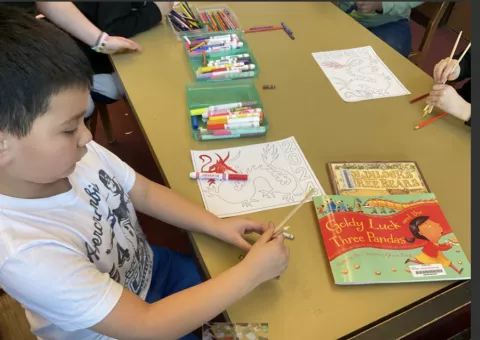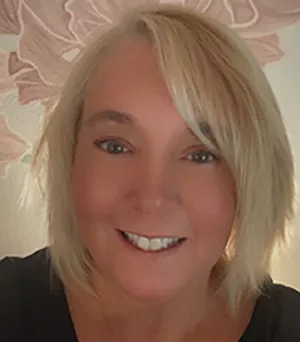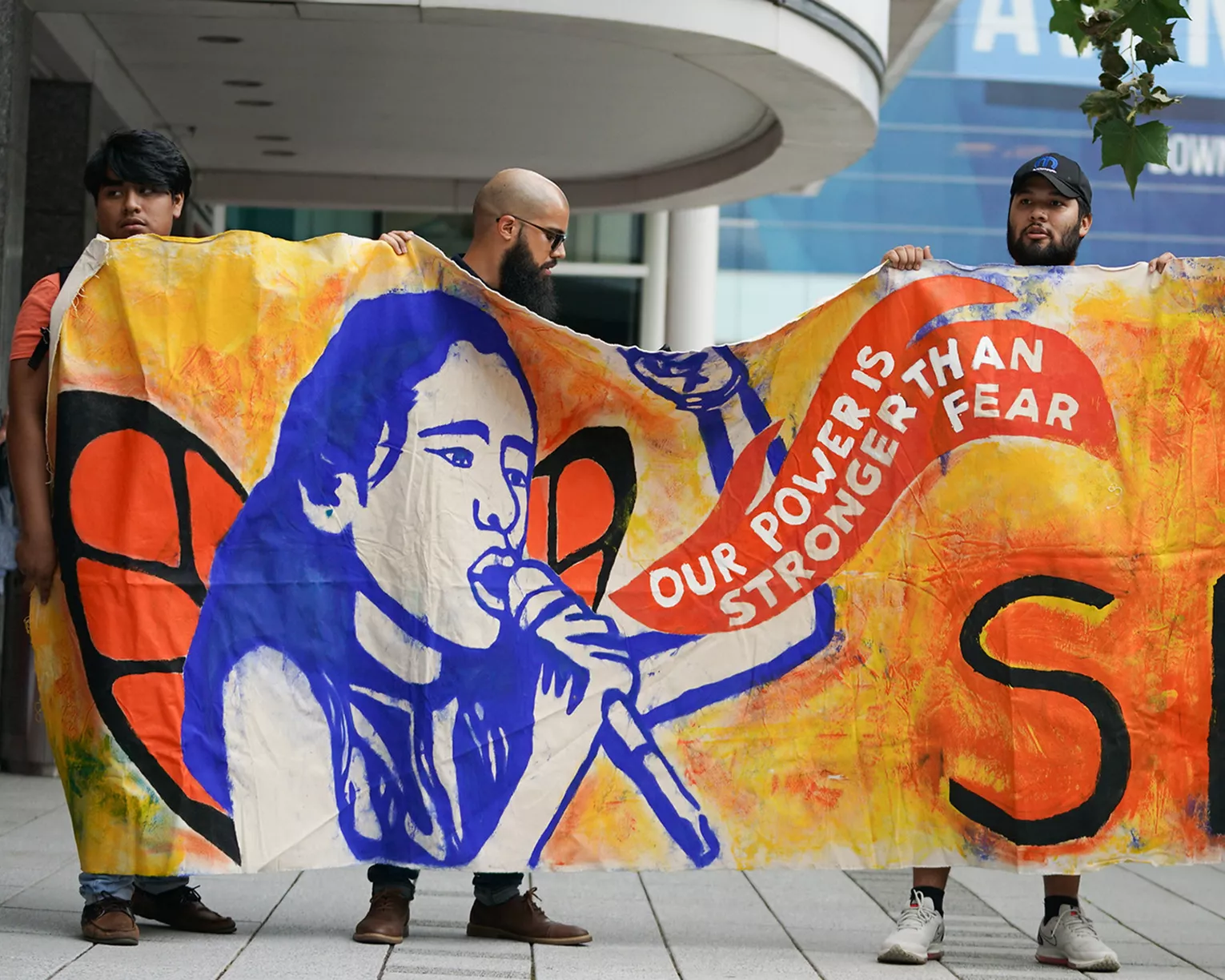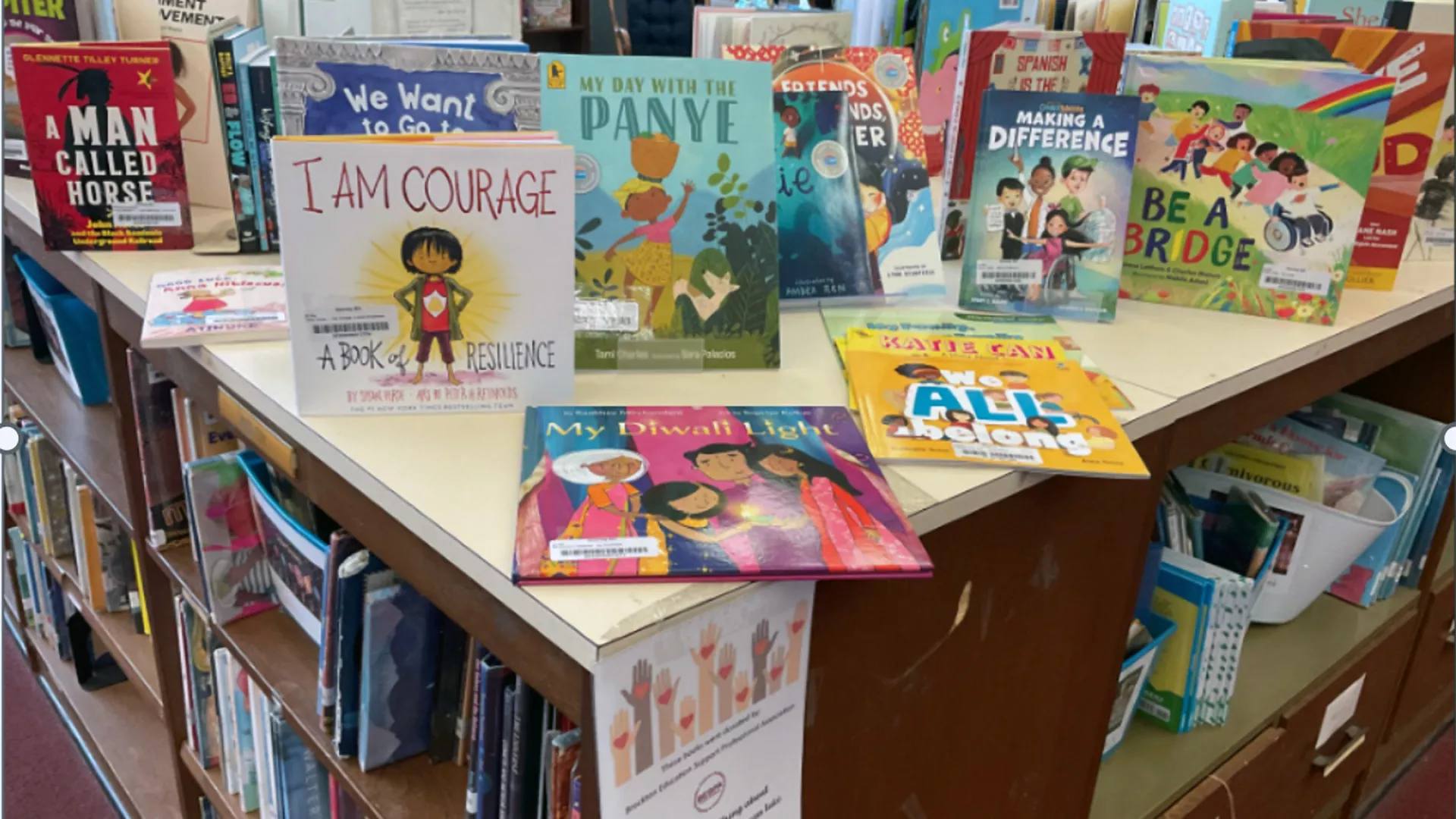
Key Takeaways
- The district's library received 700 new library books that reflect the diverse student population.
- Kids now see themselves in what they are reading and can share their cultures with their classmates, building connection.
- Reading is a foundation for learning. Books that appeal to children where they see themselves and are celebrated fosters a love of books and reading.
Marcia Hoyle Walkama is a library paraeducator at Downey Elementary School in the Brockton, Mass. school district, where she celebrates what she calls a “United Nations of kids.”
She hangs flags from all of their countries around the library and places stars on a large world map to show the students that they come from all over the globe.
But when it came to finding book titles to celebrate their diversity, she had a much harder time. Then, last spring, the district received 700 diverse books from an NEA Read Across America grant thanks to the efforts of the district’s paraeducator librarians.

“The books we had in our libraries averaged at least 30 years old,” Hoyle Walkama says. “We have kids who are Muslim but not a single book about Ramadan. Now we do, and it makes a tremendous difference! Kids are seeing themselves in books and sharing their culture with their classmates.”
Stacy MacDonald, an English Language Learner paraeducator at Edgar E. Davis Elementary School and president of the Brockton Education Support Professionals Association, says she kept hearing from the district paraeducator librarians that they hadn’t received new books in years and had no titles that reflected the student population.
Brockton Public Schools is one of the largest districts in Massachusetts. It serves nearly 17,000 students but has only one certified librarian in its high school of about 4,000 students. The libraries in elementary and middle schools are run by paraeducators.
Like many districts around the country, Brockton is experiencing budget problems. New books were not on the list of priorities, but the paraeducators working in the libraries were determined. Collectively, they parntered with their union to apply for a grant for more diverse books for their students. That's when MacDonald researched the NEA Read Across America grant.

“We have students coming into our schools from all over the world and they need to see themselves in the books they’re reading,” MacDonald says. “When NEA gave us the grant, we hit the ground running. Now we have books on everything from acceptance and belonging, different abilities, coming over the border, and going to a food pantry. Diverse books normalize topics that our community sees or experiences daily.”
At Downey Elementary, there is a large Haitian population as well as a large number of students from Cape Verde, an archipelago of islands off the west coast of Africa.
With the new books in her library, Hoyle Walkama now shows the students the similarities they share.
For example, Haitian Creole and Cape Verdean Creole share African roots, but Haitian Creole descends from French and Cape Verdean from Portuguese.
“Now they see connections with each other and their similarities rather than just their differences,” says Hoyle Walkama.
She’s thrilled to offer books about Muslim culture, as well as books about Lunar New Year for students from across east Asia.
In MacDonald’s classroom of English learners, she hears students say, “We celebrate Diwali!” Or “That girl looks just like me!”
That is the main reason for offering students diverse books, says MacDonald: “Getting to see themselves and getting them to love to read.”

Take Action on Racial & Social Justice
We are on a mission to dismantle unjust systems, and together, as educators and allies, we can take actions to address the inequities that result from institutionally racist policies and practices in our schools and the communities in which our students live.
Join us to work for access and opportunity for all students.
